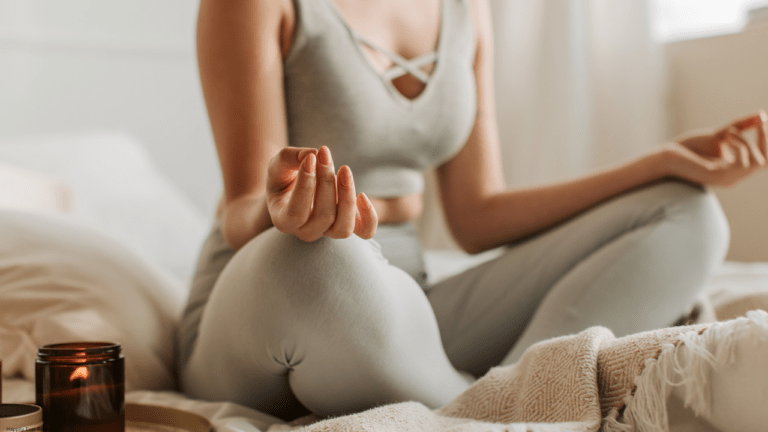Top 10 Ways to Relax and Reduce Stress in Retirement
Retirement is often seen as a time of freedom, relaxation, and new adventures. But even in this new chapter of life, stress can creep in. Whether you’re adjusting to a slower pace or juggling new commitments, stress has a way of sneaking up on us all. The good news? There are plenty of ways to unwind, recharge, and enjoy the peaceful retirement you’ve earned. Here are the top 10 ways to relax and reduce stress, tailored for retirees like you.
1. Take Daily Walks in Nature
There’s something incredibly calming about stepping outside, breathing in fresh air, and feeling the earth beneath your feet. Walking in nature is more than just exercise—it’s a chance to reconnect with the natural world, which can be profoundly healing. Studies have shown that spending time in green spaces reduces cortisol levels, a key stress hormone. Whether it’s a stroll through a local park or along a beach, this simple practice can melt away tension and restore your sense of calm.
2. Practice Mindful Breathing
One of the easiest ways to calm your mind and body is by practicing mindful breathing. You don’t need any special equipment or a lot of time—just a few minutes of focused breathing can make a world of difference. Try this: Sit in a comfortable chair, close your eyes, and take slow, deep breaths. Inhale for a count of four, hold for four, and exhale for four. This simple exercise can slow down your heart rate and help you feel more centered.
3. Learn the Art of Saying No
As you transition into retirement, it’s tempting to fill your schedule with commitments—volunteering, social events, even family obligations. But remember, your time is precious. Learning to say “no” kindly but firmly is a powerful way to protect your peace. It’s not about being selfish; it’s about recognizing that overcommitting can lead to unnecessary stress. Prioritize the activities that truly bring you joy and fulfillment.
4. Cultivate a Hobby
Retirement offers the perfect opportunity to dive into a hobby or passion you’ve always wanted to explore. Whether it’s painting, gardening, woodworking, or knitting, immersing yourself in a creative activity is an excellent way to relax and reduce stress. Hobbies provide a sense of accomplishment and purpose, and they also allow you to focus on the present moment, which can be a wonderful escape from worries and stressors.
5. Practice Gratitude
It may sound simple, but practicing gratitude can be one of the most effective ways to improve your mood and reduce stress. Take a few moments each day to reflect on the things you’re grateful for—whether it’s your health, your loved ones, or even the small pleasures like a warm cup of coffee in the morning. Keeping a gratitude journal can also help you shift your focus away from stressors and remind you of the abundance in your life.
6. Unplug and Unwind
While technology can help us stay connected, it can also contribute to feelings of overwhelm. Constant notifications, news updates, and social media can easily trigger stress. Make it a habit to unplug for a portion of your day—whether that’s enjoying a tech-free morning or setting your phone aside during meals. Use this time to read a book, sit quietly, or engage in a peaceful activity that doesn’t involve screens. Your mind will thank you for the break.
7. Connect with Friends and Family
Human connection is a vital part of stress reduction. Whether you’re catching up with an old friend over coffee or spending quality time with family, these interactions can lift your spirits and provide a much-needed break from daily worries. If you’re feeling a bit isolated, consider joining a local club, a volunteer group, or an online community. It’s never too late to make new friends, and those social connections are key to reducing stress and improving overall well-being.
8. Try Gentle Yoga or Stretching
You don’t have to twist yourself into a pretzel to reap the benefits of yoga or stretching. Gentle yoga, in particular, focuses on slow, deliberate movements and deep breathing, which can help release tension in your muscles and calm your mind. If yoga feels intimidating, simple stretching exercises can be equally effective. These practices increase flexibility, improve circulation, and encourage relaxation.
9. Create a Relaxing Space at Home
Your home should be a sanctuary—a place where you can retreat from the world and unwind. Take a look around your living space and consider ways you can make it more relaxing. Maybe it’s adding a few cozy blankets, lighting some scented candles, or playing soft music in the background. Decluttering can also make a big difference. A tidy, organized space can have a calming effect on the mind, making it easier to relax and recharge.
10. Give Yourself Permission to Rest
In a culture that often praises busyness, it’s easy to feel guilty about slowing down. But rest is not a luxury—it’s a necessity. Give yourself permission to take breaks, enjoy a leisurely afternoon nap, or simply do nothing for a while. Rest allows your body and mind to recover, which in turn reduces stress and boosts your overall well-being. Remember, you’ve spent decades working hard—it’s okay to savor some well-deserved downtime.
Embrace Relaxation in Your Retirement Journey
Retirement is meant to be a time of joy, exploration, and peace, but that doesn’t mean stress won’t come knocking now and then. The key is to have a toolkit of relaxation strategies at your disposal so you can handle those stressful moments with grace. Whether it’s taking a walk in nature, breathing deeply, or simply giving yourself permission to rest, these practices can help you live a more peaceful, balanced retirement. After all, this is your time – make the most of it by embracing relaxation and reducing stress in ways that feel good to you.








